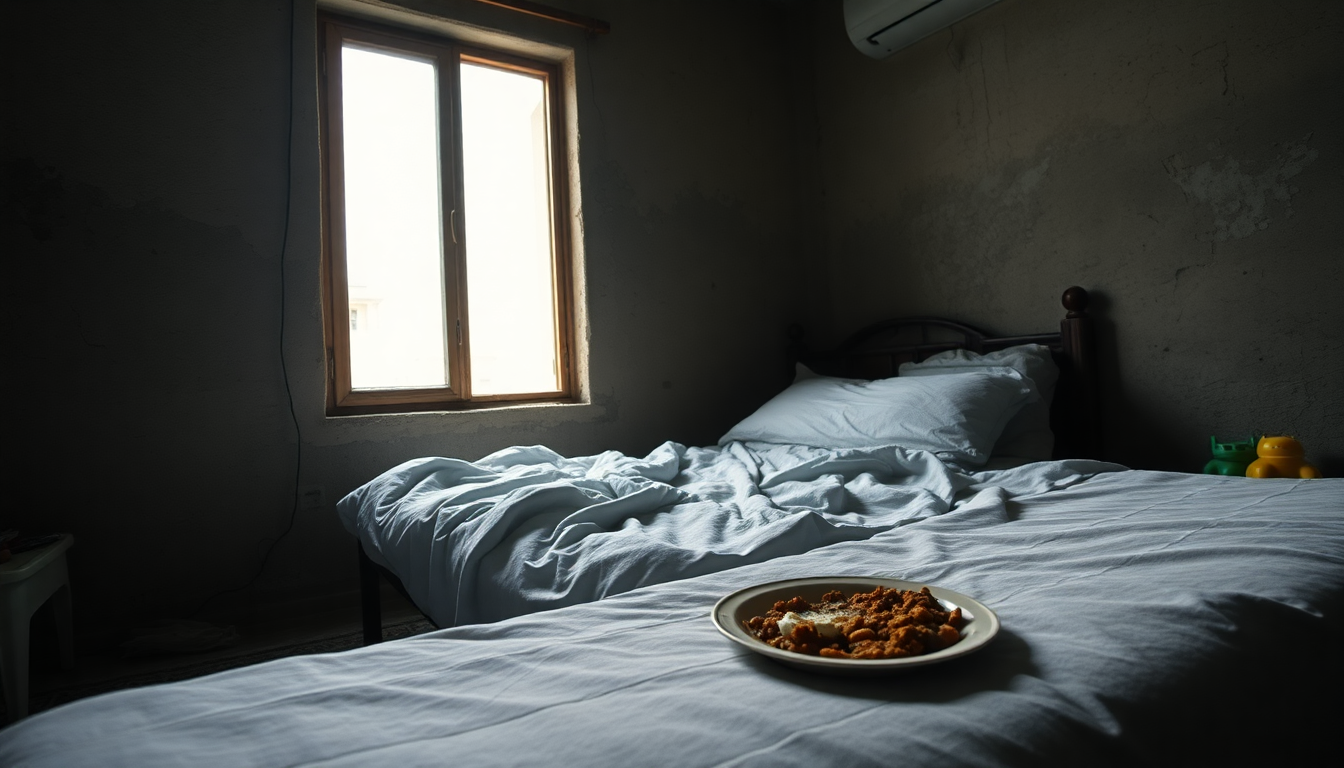Table of Contents
The humanitarian crisis in Gaza has reached shocking levels, with reports of severe malnutrition and starvation becoming a daily reality. One heartbreaking case is that of 17-year-old Atef Abu Khater, who tragically lost his life to malnutrition. Imagine going from a healthy weight of 70 kg to just 25 kg—Atef’s story is not just a personal tragedy but a chilling glimpse into the struggles faced by countless Palestinians.
As aid remains blocked, many families are grappling with the most basic needs, leading to devastating consequences.
The Alarming Reality of Malnutrition in Gaza
According to medical officials and family members, Atef was not just a victim; he was a local sports champion who fell prey to the ongoing blockade.
His death, along with reports from al-Shifa Hospital of at least seven other malnutrition-related fatalities in a short span, highlights the urgent need for humanitarian aid. The statistics are harrowing: over 169 Palestinians, including many children, have died from starvation since the conflict escalated in October 2023.
How much longer can a population teetering on the brink of famine endure?
This situation has caught the world’s attention, with humanitarian officials sounding the alarm about Israeli restrictions on aid deliveries, which have left many families struggling to find food.
While some aid has been partially restored, it still falls woefully short of meeting the overwhelming needs of the population. The United Nations has raised serious red flags, indicating that famine thresholds are being crossed in various parts of the Gaza Strip, particularly in Gaza City.
The Impacts of the Blockade on Daily Life
The blockade has led to a catastrophic collapse of essential services, including healthcare, which is vital for addressing nutritional needs. Families are faced with impossible choices, often having to decide between food and medical care.
Can you imagine being a parent and having to give your child water instead of milk due to a lack of resources? This is the heartbreaking reality for many, exemplified by the case of Misk al-Madhoun, a malnourished five-year-old whose parents are powerless to ease her suffering.
Humanitarian organizations are urgently calling for a reevaluation of how aid is delivered. Despite claims of increased aid, methods like airdrops are seen as dangerous and ineffective. The need for unrestricted access to humanitarian assistance is crucial. Aid groups stress the importance of opening all crossings into Gaza for a more effective and safe distribution of food and medical supplies. Why should anyone have to suffer when a solution is within reach?
Addressing the Crisis: The Call for Action
International condemnation of the ongoing crisis is mounting, with humanitarian leaders demanding immediate political action to alleviate the suffering in Gaza. Philippe Lazzarini, head of the UN agency for Palestinian refugees, has called for a significant shift in the current aid strategy, denouncing the deliberate obstruction of aid as a form of collective punishment for the Palestinian population. The urgency of calls for the unconditional opening of crossings grows daily as families desperately search for food amidst the chaos.
Furthermore, the Integrated Food Security Phase Classification (IPC) has issued stark warnings about the looming threat of famine in the region. The latest reports show that relentless conflict, mass displacement, and severely restricted access to humanitarian aid have pushed the situation to a critical tipping point. Will the international community finally recognize the severity of this crisis and respond with the urgency it demands?
As the world watches, the plight of the Palestinian people in Gaza unfolds—a tragic narrative filled with suffering and resilience. The need for immediate humanitarian assistance is undeniable, and addressing this crisis is not just a moral obligation but a vital step toward restoring hope and dignity to those affected. What will it take for us to truly care and take action?





